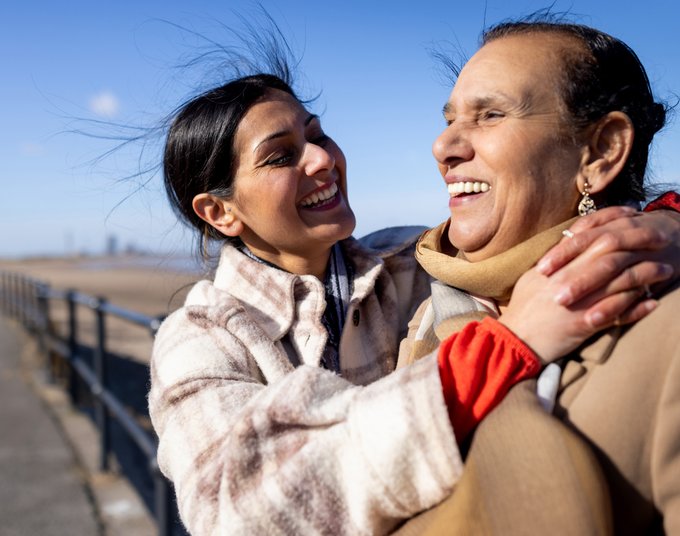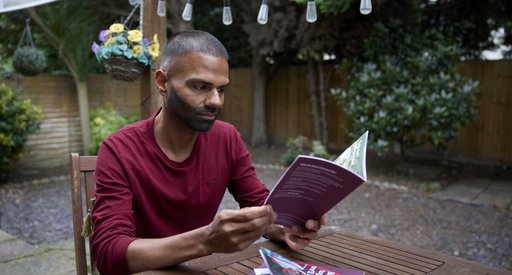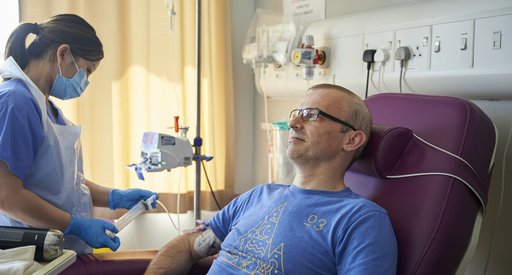Help improve access to clinical trials
Some types of blood cancer can be more common in certain ethnic groups. However, not many people from ethnic minorities access blood cancer clinical trials. We want to change this and we need your help.
Information
-
Date
Year-round
-
Where
From home
-
Time commitment
Varies
-
Commitment promise
Ongoing
Are you from a Black or Pakistani background and have been affected by blood cancer?
We know people from Black and Pakistani backgrounds are less likely to take part in clinical trials. We need your help to understand why this is and how we at Blood Cancer UK can change this.
Bristol Myers Squibb has provided funding for our Improving Access to Clinical Trials project, but has had no involvement in its development. Read about how we work with the pharmaceutical industry: Blood Cancer UK | Working with the pharmaceutical sector.
What you’ll do
You'll be invited to participate in an interview or workshop to share your insights and experiences of blood cancer and discuss how you think we can improve access to research or clinical trials.
We're looking for people who...
- Are from a Black or Pakistani background
- Have a lived experience of blood cancer
- Are over the age of 18
- You don't need to have been on a clinical trial to take part
Want to take part?
If you're happy to be interviewed or join a workshop and meet the above criteria, register your interest and we'll share further details.
Next steps
Please complete our Involvement Network form to register your interest. Once you’ve signed up, our team will be in touch with more details about this opportunity.
If you want to learn more about the project, see our Frequently Asked Questions below or email our involvement team, [email protected]

What to expect
We want to hear from you
-
Take part in small group workshops or be interviewed.
-
Use your experience of blood cancer to inform our work.
-
Connect with others and work with a friendly, supportive, and compassionate team.
-
Mostly activities will be virtual, but there may be some in-person activities.
Because together we can be the generation to beat blood cancer.
Frequently asked questions about the access to clinical trials project
Research shows that people from minority ethnic groups are less likely to participate in medical research, including clinical trials for blood cancer treatments.
This is because:
- Many people from minority communities are unaware of available opportunities to join clinical trials, limiting their participation.
- There is often a lack of culturally tailored information and support for healthcare professionals and people from ethnic minorities, creating barriers to understanding and engagement.
This underrepresentation makes it challenging to assess how treatments may affect people differently.
- Better understanding of attitudes towards and barriers to accessing clinical trials for the Black and Pakistani community.
- Develop interventions to improve awareness and access to blood cancer clinical trials and reduce health inequalities.
We're conducting workshops with members of the Black and Pakistani communities, healthcare professionals and researchers to better understand what stops people from these communities from joining clinical trials.
We're focusing on these ethnic groups because some types of blood cancer are more common in these communities.
We'll use the findings from these workshops to co-design tools with the community to test and learn.
Throughout the project, we'll be leaning on our Steering Group of professionals and community members to ensure the products developed are useable across the UK and adaptable for all minority ethnic groups.
The following pharmaceutical companies have funded this project but have had no input into its content or direction:
- Bristol Myers Squibb
Read about how we work with the pharmaceutical industry.
You might also be interested in

Making sure everyone is represented
Find out why ethnic diversity on clinical trials is so important and what we're doing to help.

Clinical Trials Information and Support
Learn how clinical trials are run, what to expect when joining a clinical trial, and how we can support you.

Join our Involvement Network
Share your experience of blood cancer and learn more about how you can inform our work.

About blood cancer
Just been diagnosed with blood cancer or know someone who has? Get essential information here.
